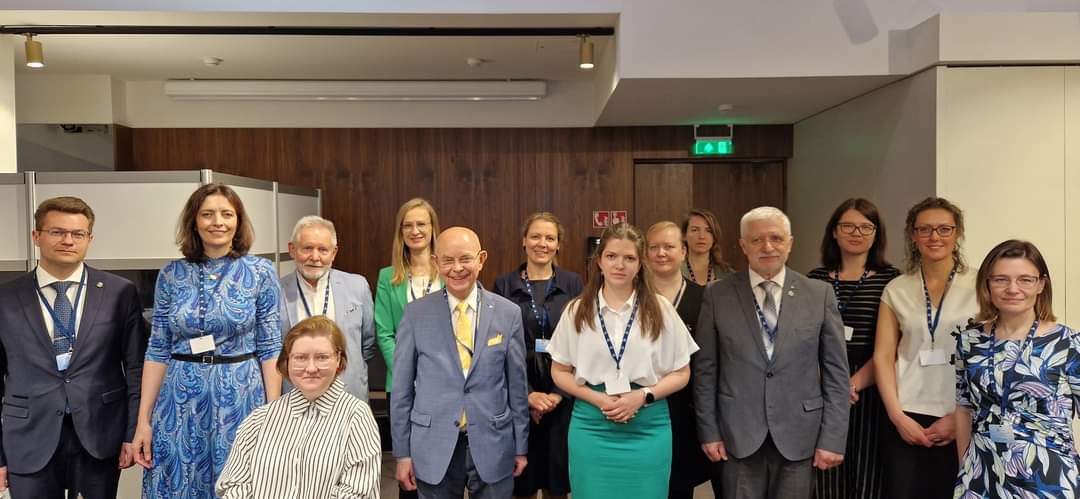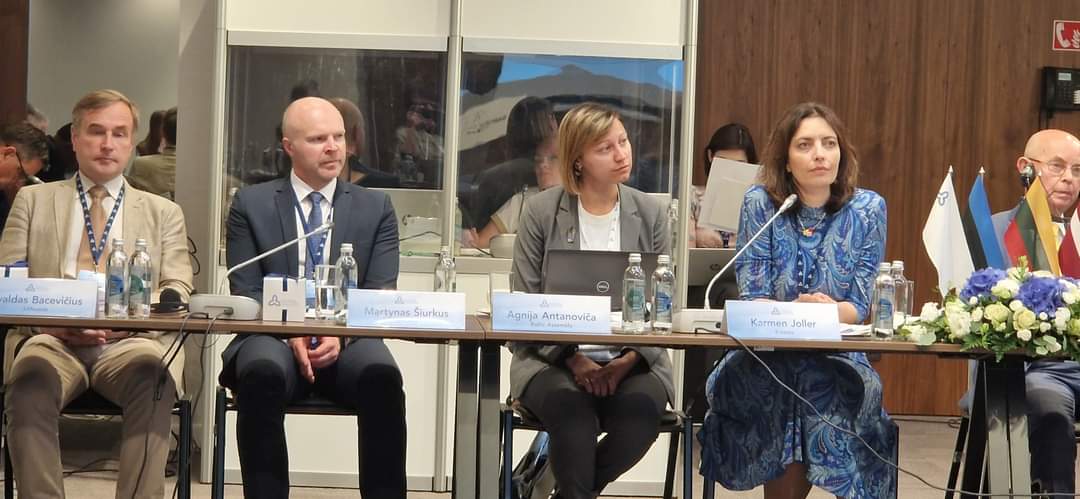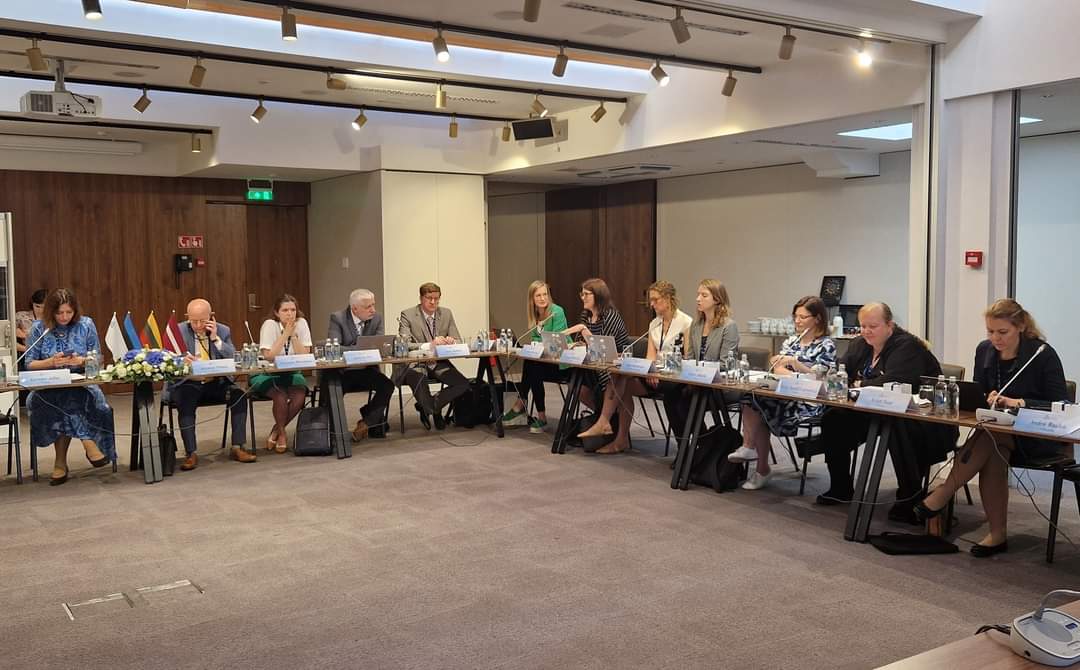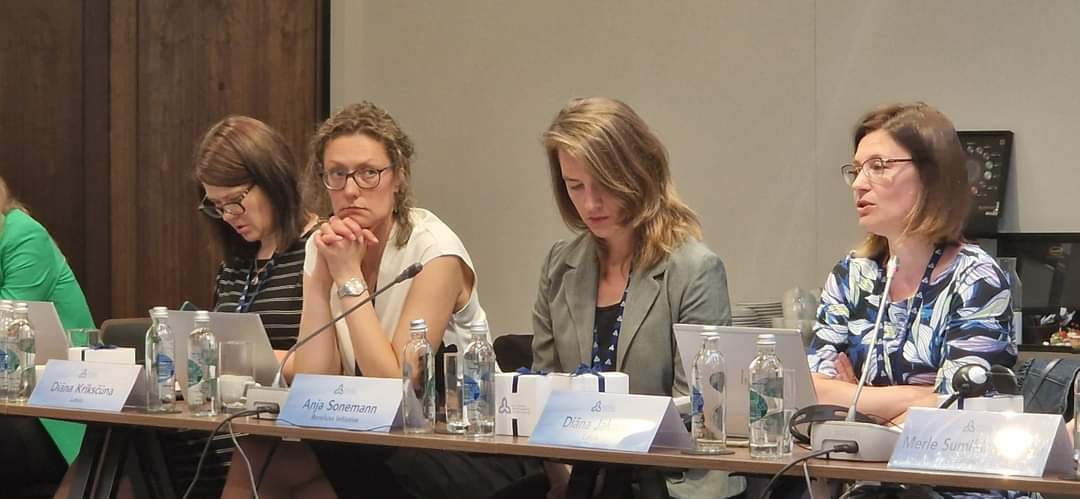On 8-9 June 2023, the meeting of the Health, Welfare and Family Committee of the Baltic Assembly took place in Vilnius, Lithuania. The main topic of the meeting was cooperation of the Baltic States to address healthcare system challenges, social inequality and youth unemployment.
Chair of the Health, Welfare and Family Committee Karmen Joller opened the meeting by highlighting that all countries of the World Health Organization’s European Region, which includes the Baltic States, currently face severe challenges related to healthcare. "The healthcare workforce shortage in the Baltic States has emerged for numerous reasons, including ageing professionals, inadequate training volumes, and migration. Despite progress, much more investment, innovation, and partnerships are needed to stop further healthcare workforce shortages. At the same time, respecting patient rights is paramount in building trust between patients and medical professionals and achieving positive health outcomes," said Karmen Joller.
During the first session of the meeting, parliamentarians, government representatives, and experts discussed joint solutions for workforce shortage and protecting patients’ rights in the Baltic States. Vice Minister of Health of Lithuania Aurimas Pečkauskas said that the shortage of medical professionals is a real problem in the Baltic States. "It needs to be accepted and addressed with long-term measures. Exchanging ideas and views helps to address this issue," emphasized Vice Minister.
Meanwhile Head of Person-Centered eHealth at the Department of Health System Development at the Ministry of Social Affairs of Estonia Katre Trofimov continued by adding that there is not only a lack of healthcare workforce, but they are also working overtime and facing many other problems. She said that the biggest facilitator of change in healthcare is digital skills, integration of the services, task shifting, tackling of legal changes, and movements and quality of data.
Head of the Human Resources Development Unit at the Ministry of Health of Latvia Kristīne Kļaviņa highlighted that the Baltic States are facing common problems and solutions, even using common wording. She suggested that the areas of cooperation for the Baltic States could include workforce strategy development, data quality and availability, IT development, recognition and regulations of qualifications, and sharing information on rare diseases.
The meeting of the Health, Welfare and Family Committee continued with a discussion about cooperation to reduce social inequality in the region. The Committee has addressed the topic before, but this time the focus was on helping vulnerable groups and comparing the social protection systems of Estonia, Lithuania and Latvia.
Chair of the Health, Welfare and Family Committee Karmen Joller said that the goal to reduce social inequality has been among the priorities of the Baltic States for some time now. "Too high levels of inequality can hamper social cohesion, lower social trust, and can even result in lost opportunities for many. Inequality also causes a wide range of health and social problems, such as reduced life expectancy, higher infant mortality, lower social mobility, and increased levels of violence. At the same time, despite acknowledging the serious impacts of inequality and the need to cooperate, the governments of the Baltic States seem not to have clear plans about the cooperation areas to help poor and vulnerable groups together," added Karmen Joller.
During the meeting, it became clear that in the Baltic States, there are similar challenges and solutions that, however, the approaches to reduce social inequality are also different. For this reason, parliamentarians and experts highlighted the need to be more active in sharing best practices and regular exchange of information.
Another topic covered by the parliamentarians and experts was joint solutions to reduce youth unemployment. The Chair of the Health, Welfare and Family Committee explained that in the Baltic States, the youth unemployment rate is higher than general unemployment. "The unemployment of young people is considered a serious problem because it can negatively impact economic growth and development. At the same time, in light of population ageing, it is important that all young people are mobilised and can contribute their skills and talent to the labour market," Karmen Joller added.
Photos


 Print
Print 










